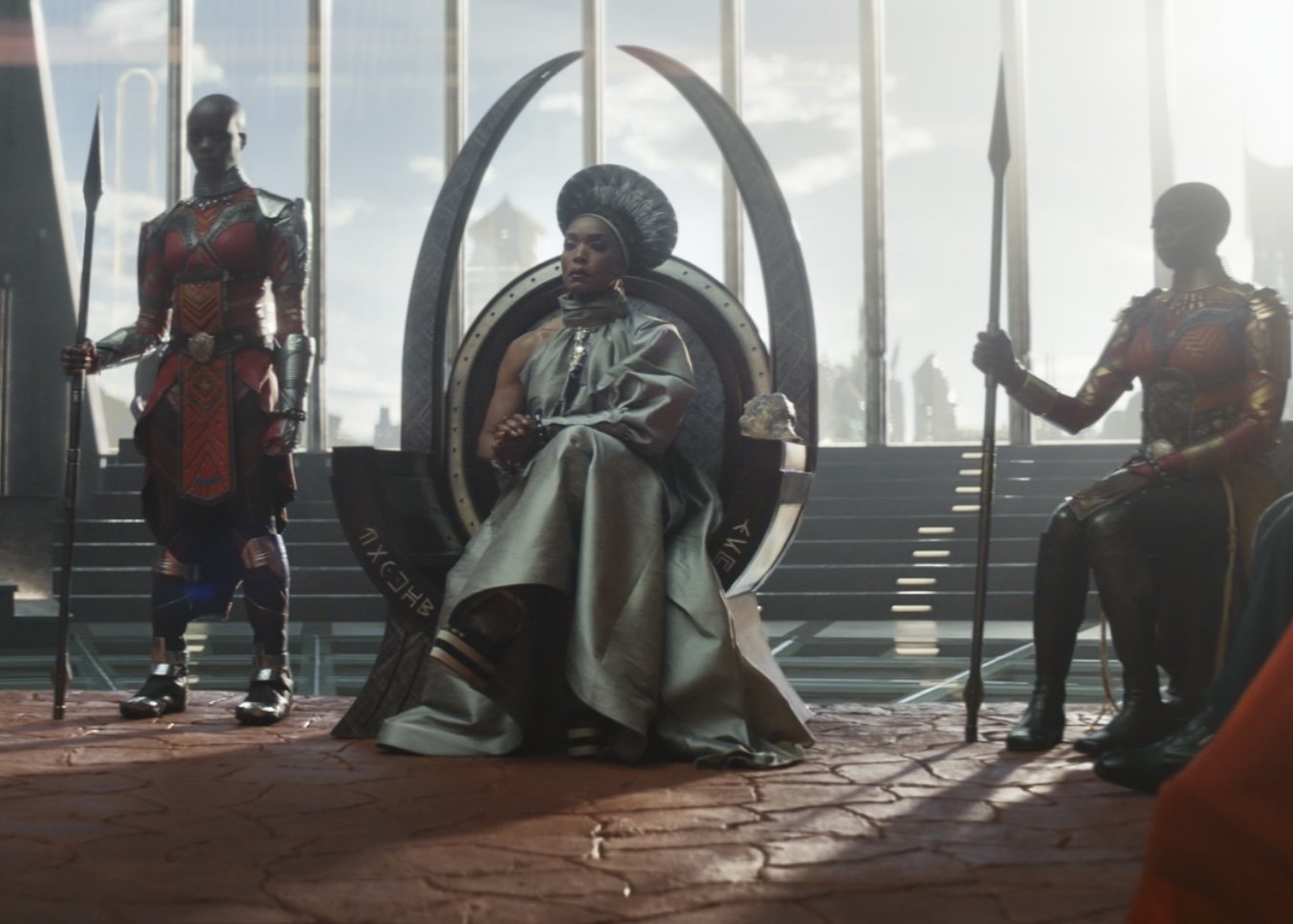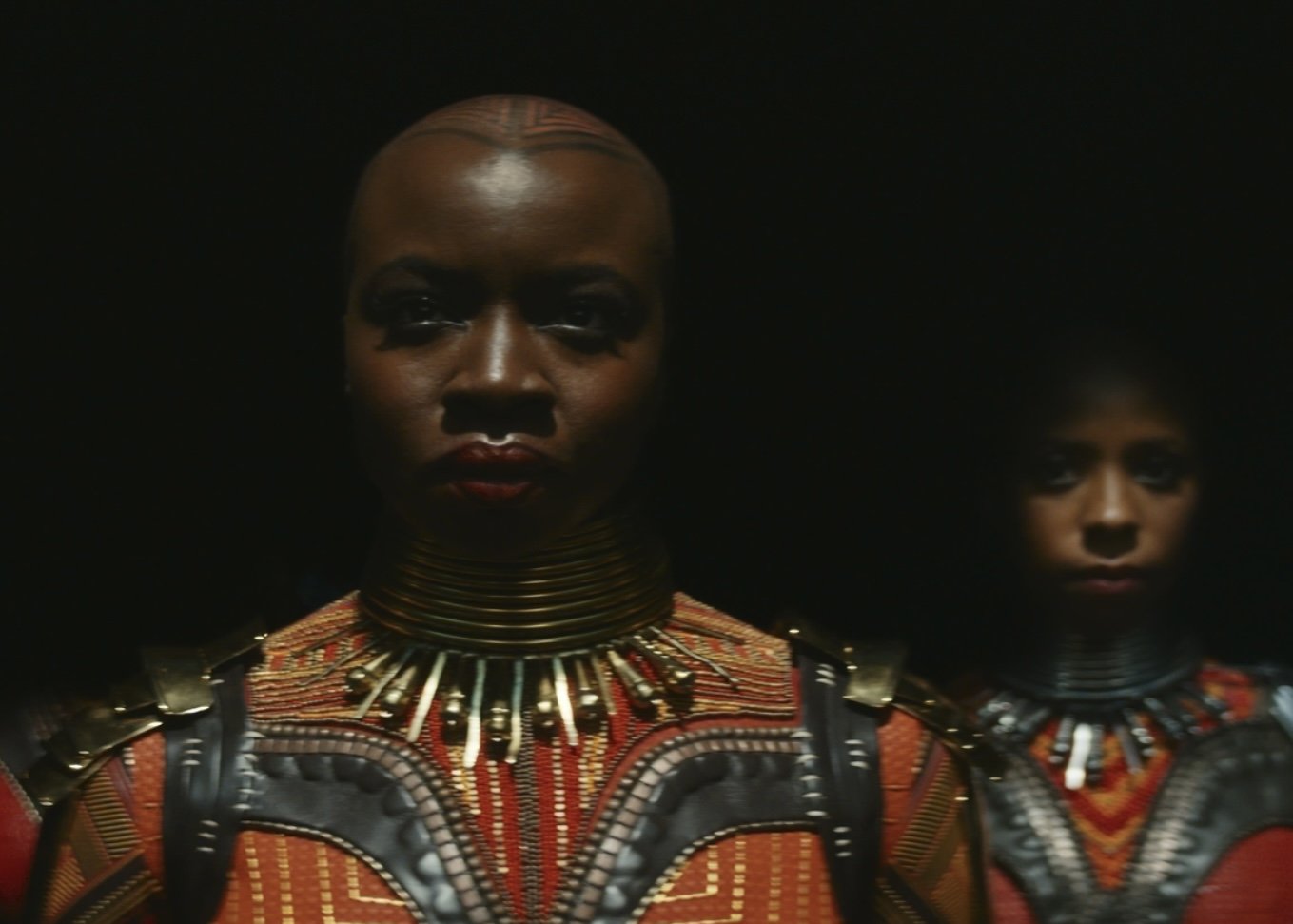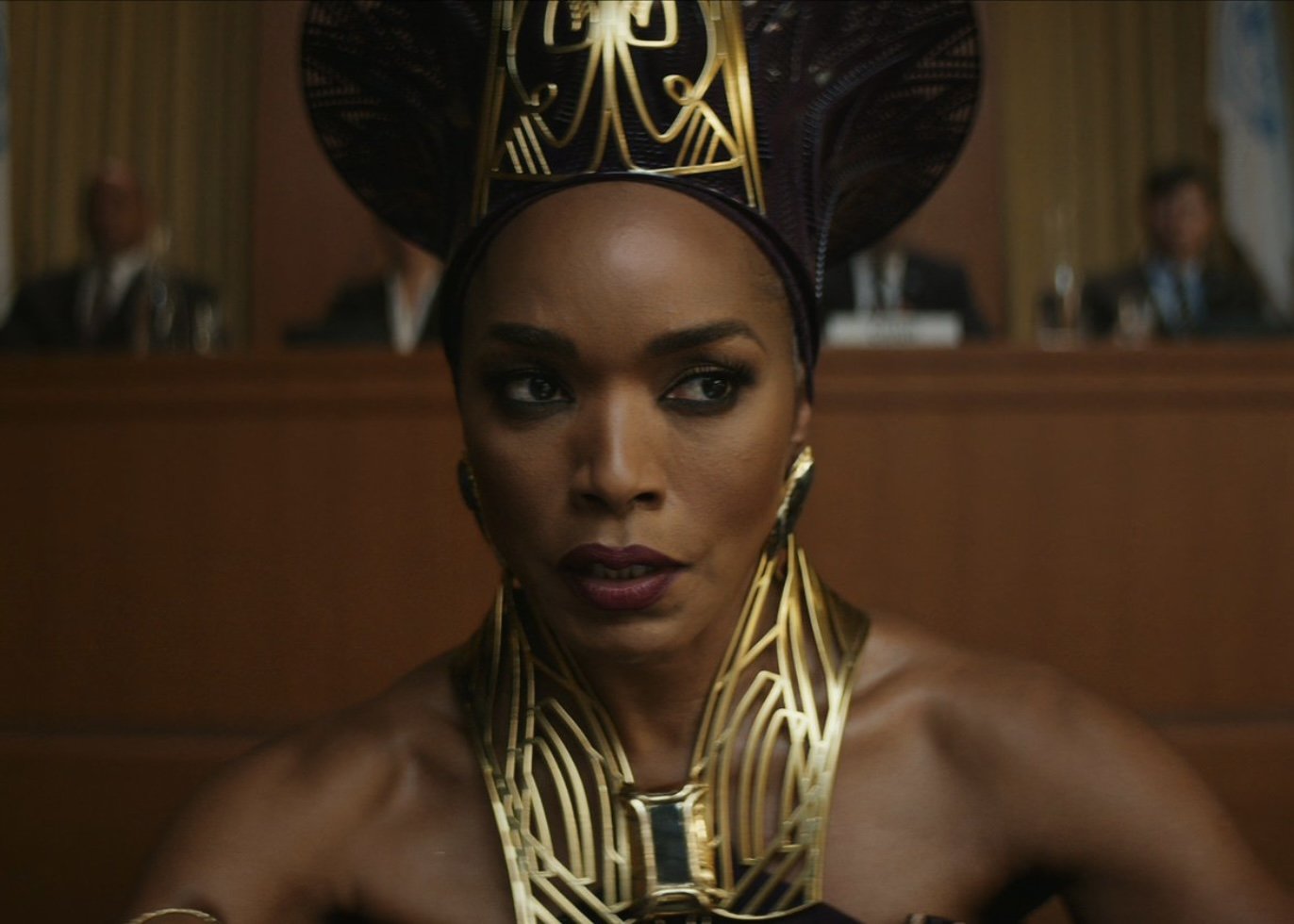Black Panther: Wakanda Forever (dir. Ryan Coogler, 2022) — Review
Typically, death is a non-issue in the Marvel Cinematic Universe, with characters spinning in and out of existence like cherries on a slot machine. Not so in the case of Black Panther, an indisputably significant superhero franchise given further weight by the passing of its star.
Black Panther, released in 2018 and starring Chadwick Boseman as the titular Prince T’Challa, offered a rare and heartening instance of big-tent mass media, an explicitly African-American blockbuster that got bums on seats across the world thanks to its knockout action sequences, family-centred plot, and uplifting message. Set in the fictional techno-utopia of Wakanda — a nation rich in the vibranium behind Captain America’s shield, among other things — the film saw T’Challa and plucky younger sister Shuri (Letitia Wright) doing battle against the upstart Killmaker (Michael B. Jordan), whilst fending off the advances of Western mercenaries. The film brought Afrofuturism to a global audience: a vision which, as director Ryan Coogler explained, “finds a way to bridge the cultural aspects of the ancient African traditions with the potential of the future”, in direct opposition to the continent’s colonial history. It’s credit to the strength of the first movie that these radical undertones — with Wakanda the only nation to escape Western eyes in the past — were widely accepted. And indeed, it’s the solidity of this moral grounding that allows the franchise to move on with a sequel shaped by the need to turn a loss into a vision of the future.
Boseman died of colon cancer in 2020, to the shock not only of Marvel studios who were clearly prepared to work with him for a long time coming, but to a new generation of superhero fans. He was not the only headline talent in the movie: Angela Bassett, as T’Challa’s mother Ramonda, is joined by Michaela Coel in the sequel, filling out an ensemble cast of which picks up the question of the bereavement and weakening of a culture. The consequent angle — and its explicit themes of gender and race — once again succeeds in expressing potentially sensitive points in context, expressing universal themes of justice and ass-kicking.
Picking up from a carnivalesque funeral sequence, blending Boseman’s death with T’Challa’s reliance on the heart-shaped herb which gave him his powers, the film gets down to its colonial meat-and-potatoes in the tradition of sci-fi allegories immemorial. Not unlike Dune, with its ‘spice’ as an allegory for Western oil-greed and T. E Lawrence, Wakanda Forever draws swiftly to Wakanda’s reliance on vibranium. After the death of their king and protector, Shrui and her mother Ramonda, as well as T’Challa’s girlfriend Nakia (Lupita Nyong’o’) struggle to balance their reliance on the mineral with their place in the global order. But when the inevitable pesky Americans find a vibranium deposit at the bottom of the Atlantic, it transpires that Wakanda is not the only alternative history case study kicking about the Southern Hemisphere.
The resources of the Marvel machine — so long wasted on whiny tech bros like Tony Stark and however many versions of Peter Parker — are turned to fresh and impressive ends with the realm of Talokan: an underwater Mesoamerican kingdom ruled by Namor (Tenoch Huerta), the ‘feathered serpent-god’ who blames the Wakandans for America’s incursions. The Talokani even have their own catchy hand signal to rival the crossed-fist ‘Wakanda Forever’ gesture — and one derived from Mesoamerican codices at that.
However, the fruitless enmity between these two indigenous peoples continues at the heart of the film, offering yet another frustrating tragedy, to say nothing of plot holes. The core allegiance of the script, the cast, and the viewer lies with the absent T’Challa; that power vacuum seems to stymie every one of his successors. The jarring injustice of the United Nations’ demand for Wakanda to give up its vibranium is weirdly swept aside as the Talokani are introduced, a wobble that outweighs the solemnity of Angela Bassett and the other Wakandan royals, playing to a grief that is all too clearly based in reality.
At the same time, the core theme of loss — first of a region and a people’s history, then of a fictional and real-life figurehead — provides a tangible base for another slew of gorgeous, jaw-dropping set pieces. In contrast to the often glib use of CGI or hordes of extras in wartime blockbusters, Wakanda Forever turns its budget to unfailingly sincere ends: obvious melodrama with the committed edge of Golden Age Hollywood. The meticulous care with which it depicts an imagined society — through mourning, political spectacle, and warfare — speaks to the edge of sincerity that underpins the project, unlike the relentless irony of Marvel’s “Phases” and its notorious, reversible fictional mass genocide.





